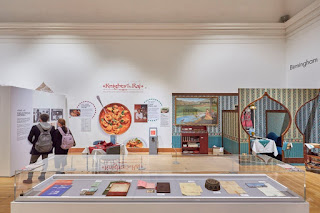Food glorious food, how can we display it? Food and drink exhibitions in museums

14th August 2018 In Collections , Exploring History , Industry Trends And Critical Analysis Try entering ‘food and drink museums’ into Google. The results will tell you three things about the current status of food and drink in museums. Firstly, food and drink museums are characterised as ‘weird’ and, as a consequence, trivialised. Secondly, most food and drink collections have their own dedicated museums, which are confined to large cities in the US and, to a lesser extent, the UK. Finally, food and drink in most museums tends to be restricted to the (often overpriced) cafés; few museums have interpreted aliment in their displays. Given the importance of food and drink to all human beings, this absence is odd. Food is not only sustenance: it is pleasure, it is culture, it is identity. As Roland Barthes suggests, food is a “system of communication, a body of images, a protocol of usages, situations, and behaviours”. I would suggest several interlinked factors prevent many museum
